Description
Wilhelm Furtwängler was identified with Beethoven more than with any other composer. He wrote and spoke extensively on the subject of Beethoven's music. Furtwängler considered Beethoven's works to be pure music, in that "contrary to first appearances, there are no external means of access to his music."
Furtwängler further insisted that Beethoven performers must re-experience this music each time it was played, a creed he faithfully followed in his own performances. The live rendition of Beethoven's First Symphony heard here dates from immediately after recording sessions with the Vienna Philharmonic. There is little doubt that the concert performance presents the work with an added dimension of tension and spontaneity, though the studio version hardly differs in outline or overall concept. The Vienna Philharmonic also adds a measure of geniality barely hinted at in Furtwängler's last Berlin performance of September 19, 1954.
Furtwängler left us several notable performances of the Eroica. The one included here stems from a 1950 concert in the Titania Palast, the former cinema which served as the Berlin Philharmonic's concert hall before erection of the new Philharmonie. This reading preserves many of the features of the conductor's finest performances, without the singular extremes that distinguish the best. One might say that this concert performance lacks the powerful drive and occasional near-hysteria of the December 1944 Vienna Philharmonic broadcast tape, as well as the amazing breadth and authority of the Berlin reading given on December 8, 1952. Admittedly, if we were left with nothing but his 1952 studio recording of the Eroica with the Vienna Philharmonic, we would no doubt still view Furtwängler as one of this work's most important advocates after Artur Nikisch and Felix Weingartner. As it is, the surviving Furtwängler concert readings of the Eroica present almost an embarrassment of riches in that one can afford to entertain recordings such as the present one chiefly for their supplementary value. This 1950 Berlin Philharmonic reading is more tightly contained than Furtwängler's 1952 Berlin performances, yet its comparative restraint still embodies the careful attention to phrasing and line that distinguishes his Beethoven
An equal embarrassment of riches awaits us when we come to Furtwangler's performances of the Beethoven Ninth, of which ten performances survive. Some of these, including two given in Vienna in 1951 are not among the conductor's best (he was in poor health in that year), but the February 1952 concert heard in this compilation presents a strong profile.
Here the basses dig in with gusto in the first movement development, the winds (especially the Viennese oboe) sing eloquently, and the orchestra's playing shows the commitment borne of their long relationship with Furtwängler. The Vienna Philharmonic has an uncanny sense of how to apply string portamento for added expression without affectation. In the Scherzo, one hears the tempo rushing ahead impulsively at times, though never with loss of control; the Trio is phrased with delicacy. The Adagio, not stretched as daringly as in Furtwängler's famed Bayreuth and Lucerne performances, is eloquent nonetheless.
The Vienna strings sing most affectingly in the Finale's opening – in particular, note the violins after 4:50. This movement also features a well-matched group of soloists. Even those who cavil at the voice of tenor Julius Patzak will concede that he is heard here in better voice than in his rather breathless account with the same forces in 1951, and sounds altogether fresher than for Jascha Horenstein's 1956 Vox recording. The controlled impetuosity of this performance embodies Furtwängler's own description of the composer's works: "the Dionysian and the Apollonian, ecstatic abandon and cool sobriety, find common cause."
The collection is rounded out with a previously unpublished interview with Elisabeth Schwarzkopf on Furtwangler's approach to the Beethoven 9th, his working methods and their impact on the performers.
–Mark Kluge, from the booklet notes
CD-1117(2) WILHELM FURTWÄNGLER CONDUCTS THREE SYMPHONIES BY BEETHOVEN
CD 1 (77:19) BEETHOVEN: Symphony No. 1 in C Major Op. 21 VPO, 30 Nov. 1952*. Symphony No. 3 in Eb Major Op. 55 BPO, 20 June 1950*.
CD 2 (79:49) Symphony No. 9 in D Minor, Op. 125 VPO, 3 Feb. 1952. Contains an excerpt from an interview with Elisabeth Schwarzkopf on Furtwangler (interviewer: Fred Maroth; 14 Aug. 1980, San Francisco). Hilde Güden, sop. Rosette Anday, alto. Julius Patzak, ten. Alfred Poell, bass. Total time: 157:08, [AAD] UPC# 0-17685-11172-3. *Previously issued on Music & Arts CD-711.


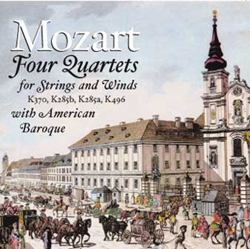
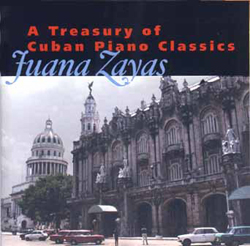
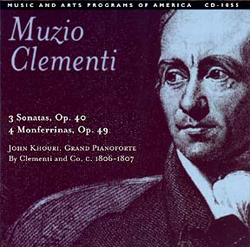
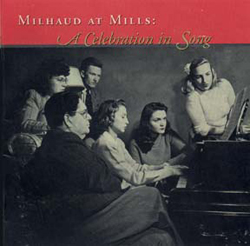
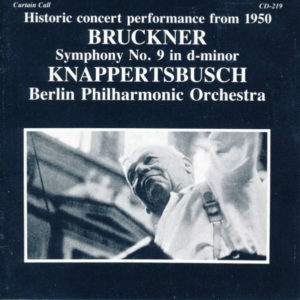

Reviews
There are no reviews yet.